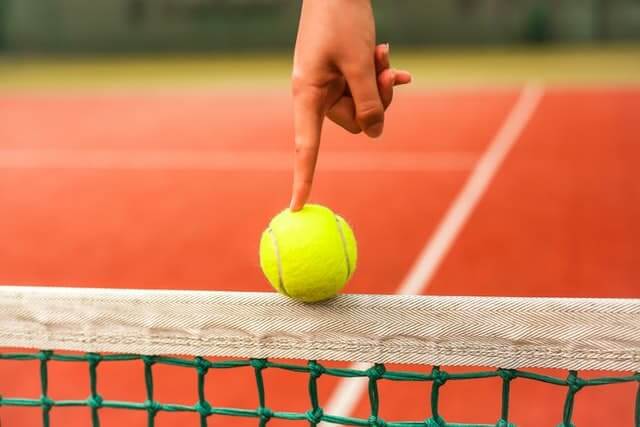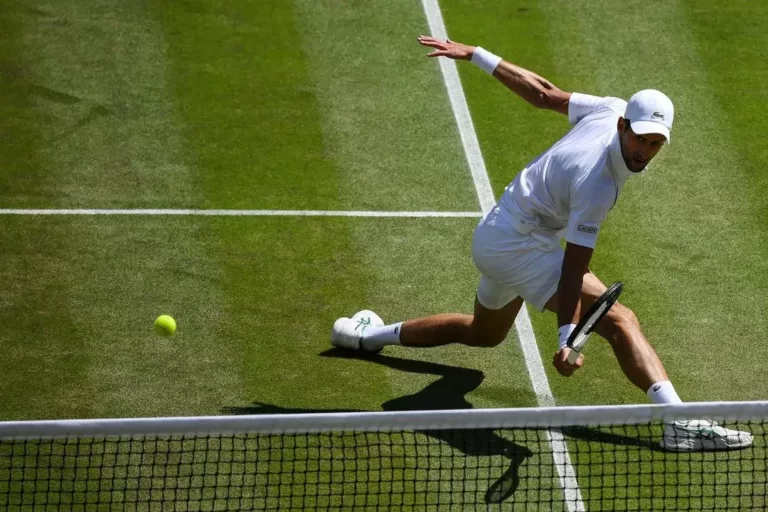Can You Throw Your Racket In Tennis?
Tennis is a sport that requires skill, precision, and sportsmanship. You might have experienced moments of frustration on the court as a tennis player, and the thought of throwing your racket might have crossed your mind. But can you throw your racket in tennis?
No, intentionally throwing your racket in tennis is against the rules and considered unsportsmanlike conduct. It can result in penalties or even disqualification from the match.

This article will delve into the rules and etiquette surrounding this action and explore the potential consequences. So, let’s get started!
Why is Throwing Your Racket Not Allowed?

Throwing your racket in a fit of frustration might seem like a release in the heat of the moment, but the rules against it are there for several important reasons. Let’s break down each step to understand why this action is prohibited in tennis:
1. Preserving Sportsmanship
At the heart of tennis is the spirit of sportsmanship. The game celebrates respect, fair play, and healthy competition. Throwing your racket contradicts these values, as it’s an act of unsportsmanlike conduct that disrupts the positive atmosphere on the court.
2. Maintaining Respect
Tennis is a contest between opponents and a mutual respect between players. Throwing your racket displays disrespect not only towards your opponent but also towards the officials, the audience, and the game itself. It tarnishes the dignity of the sport.
3. Distraction and Disruption

A thrown racket can disrupt the flow of the match. It distracts both your opponent and the spectators, affecting the concentration and enjoyment of the game. Tennis requires focus, and such actions disturb the natural rhythm.
4. Safety Concerns
Tennis rackets are not lightweight objects. Hurling one in frustration poses a safety risk. There’s a chance that the racket could hit someone—be it a ball kid, a spectator, or even your opponent—leading to potential injury.
5. Role Modeling
Tennis players, especially those in the professional circuit, are role models for aspiring athletes and fans. Your actions influence others. Throwing your racket sets a negative example, showing that it’s okay to vent anger through improper behavior.
6. Adherence to Rules
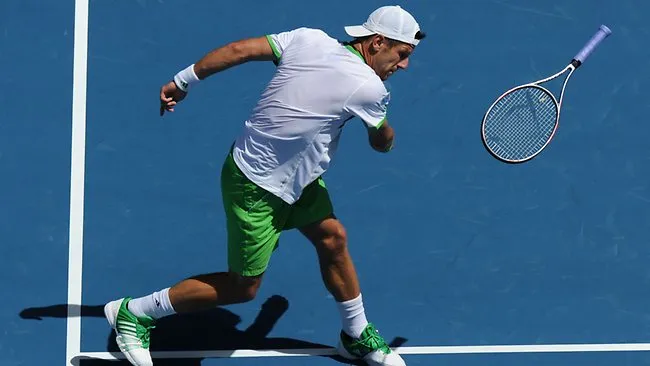
Tennis is governed by organizations like the International Tennis Federation (ITF). These rules ensure fairness, consistency, and integrity. Racket-throwing is prohibited, and players must adhere to these guidelines.
7. Consequences and Penalties
Tennis authorities take rule violations seriously. If you throw your racket, you risk penalties ranging from warnings to point deductions, game losses, or even disqualification, depending on the severity and frequency of the offense.
Are you looking for expert insights? Dive into this Quora thread for in-depth discussions on the topic. Learn from the community’s knowledge and experiences!
What Are The Official Rules On A Dropped Tennis Racket?
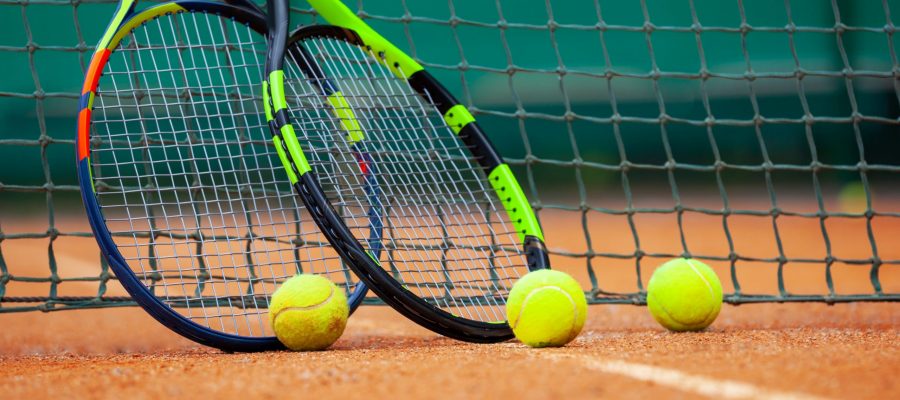
Understanding the official rules of dropping a tennis racket is crucial for upholding a fair and respectful playing atmosphere. Let’s dissect these rules step by step to provide a clear understanding:
1. Unintentional Drops
If you accidentally release your racket during a point, it’s generally not considered a violation. The point carries on, and no immediate penalties are imposed. This acknowledges that mistakes can occur without any deliberate intent.
2. Intentional Drops
Deliberately releasing your racket as a tactic, distraction, or response to frustration is prohibited. Such actions are deemed unsportsmanlike conduct and can lead to penalties. The emphasis is on maintaining fairness and preventing disruptive behavior.
3. Racket Abuse
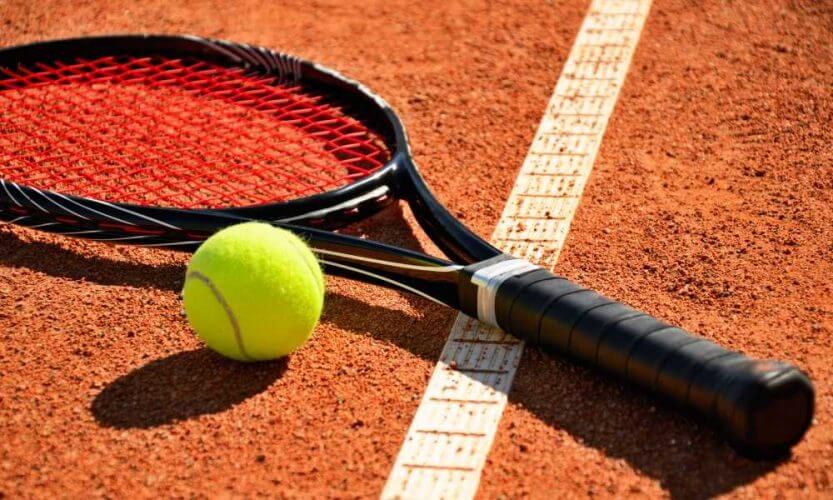
Engaging in repeated racket drops or “racket abuse” might result in penalties. Racket abuse includes forcefully hitting the racket against the court or net out of frustration. The rules discourage behaviors that could negatively affect the match or opponents.
4. Disruption of Play
The umpire can step in if a dropped racket disrupts the match. They may pause the game and make a judgment call depending on the situation. This could involve awarding your opponent a point or even a game if the disruption is significant.
5. Umpire’s Discretion
The umpire plays a pivotal role in enforcing these rules. They have the discretion to interpret the situation and apply penalties accordingly. Consistent violations or particularly egregious behavior could lead to more severe consequences.
“Curious about the rules in tennis regarding throwing your racket? Watch this below YouTube video to learn about the do’s and don’ts of racket behavior on the court. Stay informed and enhance your tennis game etiquette!”
6. Sportsmanship and Integrity
These rules are rooted in maintaining the principles of sportsmanship and the integrity of the game. They ensure that matches proceed smoothly, without unnecessary interruptions or disturbances caused by actions like racket-throwing.
7. Professional Matches
In professional tennis matches, umpires stringently uphold these rules. Players at this level are held to a high standard of conduct to ensure a fair and respectful competition.
8. Youth and Amateur Tennis
The rules also extend to youth and amateur tennis, promoting good behavior and teaching players about fair play and respect for opponents.
Explore this Reddit thread for in-depth discussions and insights on this topic. Join the conversation with fellow enthusiasts and broaden your understanding!
Alternatives to Throwing Your Racket
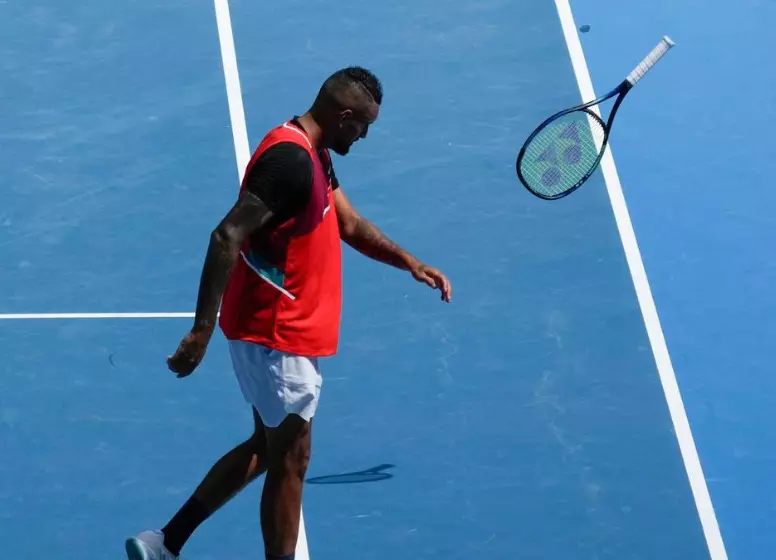
Handling frustration is a natural part of playing tennis, but how you manage it can profoundly impact your performance and overall enjoyment. Let’s delve into some positive alternatives to throwing your racket, step by step:
Take a Breath
When frustration starts to mount, take a moment to pause and take a deep, calming breath. This simple act can help you regain your composure and redirect your focus.
Embrace Mindfulness
Practice being fully present in the moment. Shift your attention away from the frustration and immerse yourself in the current point. Mindfulness can help quiet down negative emotions.
Encourage Yourself
Swap out negative self-talk with positive affirmations. Remind yourself of your strengths and previous achievements to boost your self-confidence and motivation.
Reset Physically
Establish a physical routine between points. For instance, you might bounce the ball several times before serving. This ritual can serve as a mental reset, allowing you to regain concentration.
Seek Coach’s Insight
Consult your coach if your match permits coaching breaks. Their insights and strategies can provide a fresh perspective and assist you in handling challenging moments effectively.
Convert Emotions into Drive
Instead of letting frustration overpower you, transform that energy into determination. Use it to fuel your desire to enhance your performance and prove your ability to overcome obstacles.
Embrace Errors as Learning
Shift your mindset about mistakes. Instead of becoming frustrated, view errors as valuable lessons. Each misstep is an opportunity for growth and skill refinement.
Focus on Game Plan
Direct your attention toward your overall game plan and strategy. Analyze your opponent’s weaknesses and play to your strengths. This strategic focus redirects your thoughts away from negativity.
Visualize Success
Take a mental break to visualize successful shots and points. Visualization can boost your confidence and help you approach the game positively.
Stay Present
Refrain from dwelling on past mistakes or worrying about future points. Stay in the present moment, focusing solely on the point at hand.
Accept Imperfection
Understand that no player is flawless. Everyone makes mistakes. Embrace imperfection as part of the game and an opportunity for growth.
Stay Hydrated
Proper hydration contributes to maintaining your physical and mental well-being on the court. Remember to drink water regularly.
Celebrate Small Wins
Acknowledge and celebrate even the smallest successes during a match. Positive reinforcement can boost your morale and reduce frustration.
Use Timeout Strategically
If allowed, take a timeout to regroup and regain composure. Use this time to reevaluate your strategy and mindset.
Reflect After the Match
Reflect on your performance objectively after the match. Identify areas for improvement and develop a plan for addressing them in future matches.
Adopting these alternatives allows you to manage frustration more effectively, maintain your sportsmanship, and enhance your tennis experience. Remember, how you react to challenges defines your character as a player.
Watch this YouTube video to discover if throwing your racket can help or hurt your game. Learn some useful tips to improve your skills on the court!
Do you have more questions? Our FAQ section is here to help! Find speedy solutions to common queries and gain valuable insights in no time.
Frequently Asked Questions
1. Is throwing a racket ever allowed in tennis?
No, intentionally throwing a racket is against the rules of tennis. It’s considered unsportsmanlike conduct and can lead to penalties or disqualification.
2. What are some alternatives to throwing a racket?
Instead of throwing your racket, try taking deep breaths, practicing mindfulness, or focusing on the next point to manage frustration constructively.
3. Can throwing a racket affect the outcome of a match?
Yes, throwing a racket can disrupt the flow of the match, affecting your opponent’s concentration and potentially influencing the outcome.
4. Are there any famous instances of racket-throwing in tennis?
Yes, some players have had moments of frustration where they threw their rackets, but these actions are often regretted due to the resulting penalties and negative impact.
5. How can I improve my sportsmanship in tennis?
Focus on maintaining composure, treating opponents with respect, and upholding the values of fair play, both on and off the court. This will make you a better player and contribute to the game’s positive atmosphere.
Conclusion
In the dynamic world of tennis, the act of throwing your racket is not just a mere violation of the rules; it’s a breach of the very essence of the sport. Tennis celebrates sportsmanship, respect, and fair play. While frustration is a natural emotion, how we handle it shapes our character on and off the court. So remember, while the urge to toss your racket might arise, embracing the values of integrity and respect ultimately enriches the game for everyone involved.
REFERENCES
- https://www.quora.com/Can-you-throw-your-racket-in-tennis
- https://tt.tennis-warehouse.com/index.php?threads/throwing-your-racquet-to-reach-a-ball-is-it-legal.195732/
- https://www.menstennisforums.com/threads/droping-your-racket-during-play.121147/
- https://www.tennisforum.com/threads/have-you-ever-smashed-broken-your-racquet.617313/





